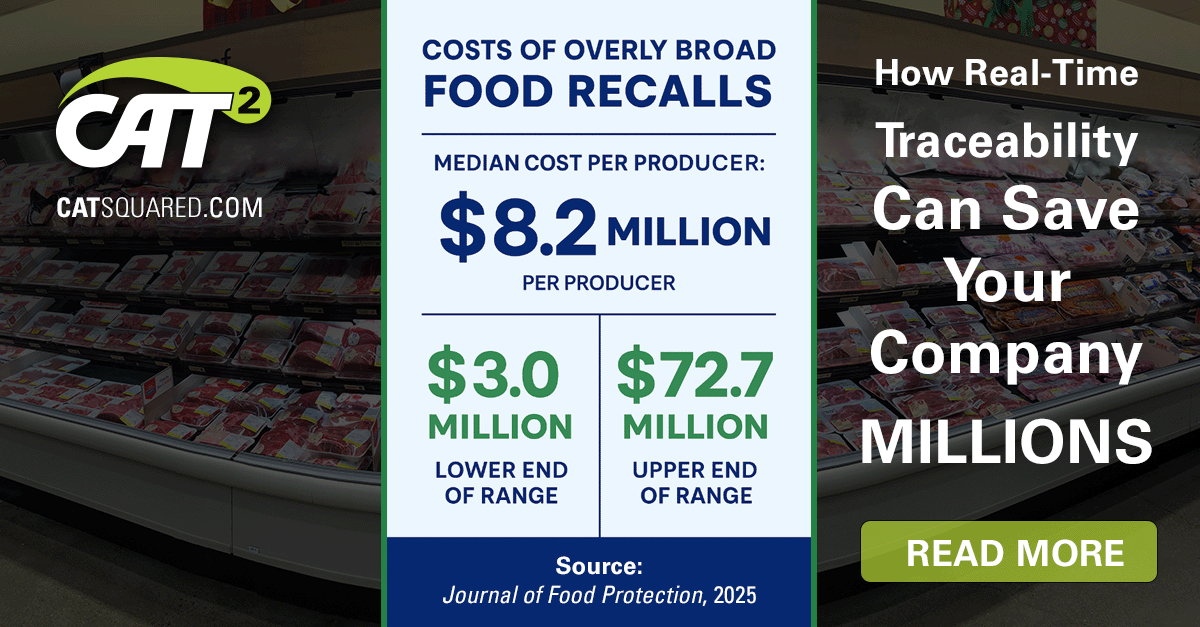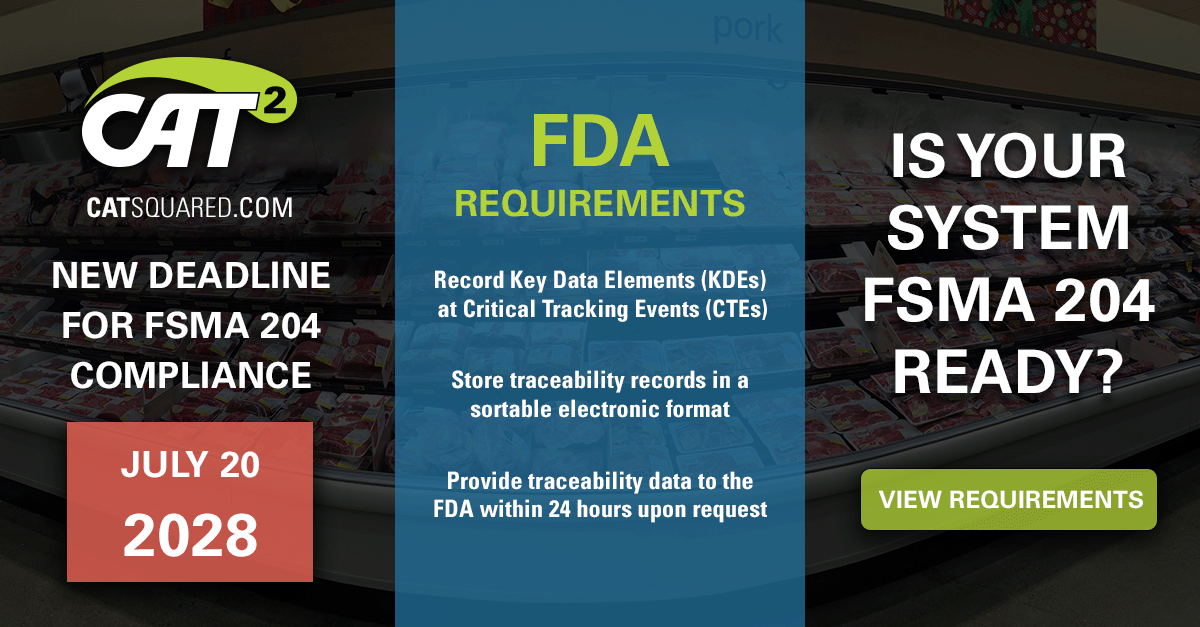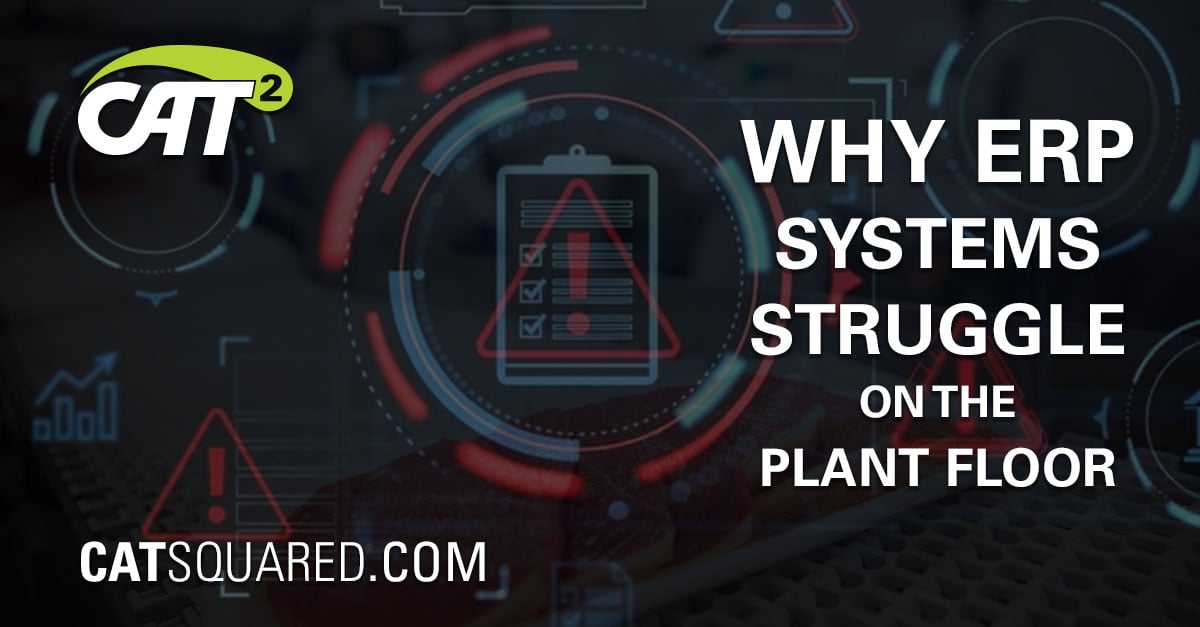When a food recall happens, the damage is rarely limited to just the affected products. In many cases, the entire production run—or even multiple lots—gets pulled from the market because companies can’t pinpoint the exact scope of contamination.
According to a peer-reviewed study published in the Journal of Food Protection, the median cost of an overly broad recall is $8.2 million per producer, with some cases exceeding $72.7 million. Those costs include not only lost product, but also logistics, legal fees, lost contracts, and brand damage.
What’s worse? Many of those losses are avoidable.
What Makes Recalls So Expensive?
Overly broad recalls occur when companies lack the precision to isolate only the affected product. That lack of granularity results in:
-
Pulling unaffected inventory
-
Triggering chain-wide recalls across partners
-
Delayed responses due to fragmented systems
-
Lack of audit-ready documentation to defend scope decisions
In short: if you can’t prove what wasn’t affected, you’re forced to recall everything.
Real-Time Traceability: Your Defense Against Unnecessary Recalls
This is where CAT Squared delivers strategic value. Our core MES platform already provides the one-up, one-down traceability required by regulators, tracking each product from live receiving through processing, labeling, warehousing, and shipping.
For processors looking to go beyond compliance, our Starfish-powered traceability engine integrates seamlessly with the MES to capture KDEs, CTEs, quality records, and supplier certifications in real-time.
With CAT Squared, food processors can:
-
Track each lot from live receiving to final shipment
-
Isolate only affected products during a recall
-
Generate audit-ready reports in seconds
-
Protect unaffected inventory and avoid product waste
-
Meet emerging FSMA 204 requirements with minimal system changes
Real-World Business Benefits:
Implementing precision traceability does more than meet regulatory requirements. It enables you to:
-
Protect revenue by isolating only affected products
-
Avoid unnecessary waste and disposal of unaffected goods
-
Preserve customer relationships and brand equity
-
Support retailer-specific data requests with EDI-ready exports
-
Improve response time and decision-making in crisis events
Connected Compliance, Not Just Checkboxes
While many companies are preparing for FSMA 204, the real value of traceability lies beyond compliance. It’s about ensuring resilience, profitability, and consumer confidence in the face of disruption.
Explore how CAT Squared’s integrated platform helps food processors stay ready, responsive, and protected.
Explore our traceability solution
Looking for real-world strategies to reduce recall risk?
👉 Read: FSMA 204 Traceability Software: Going Beyond Basic Compliance
Want to know more about how to prep for compliance?
👉 Check out: FSMA 204 Traceability Requirements: What Food Processors Need to Know





